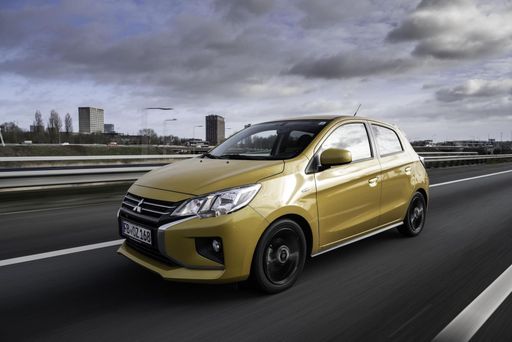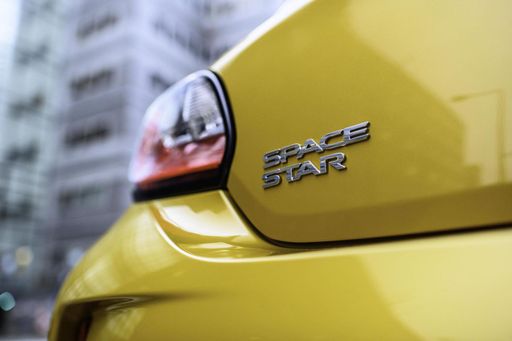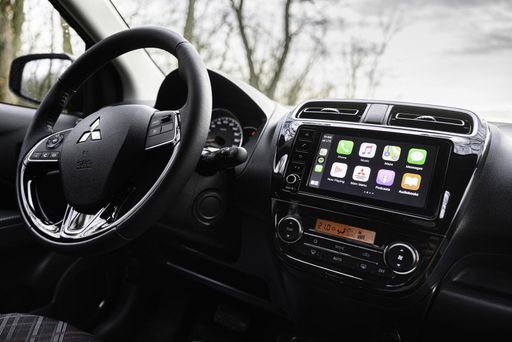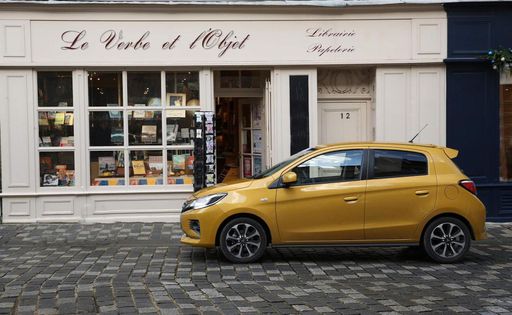Hyundai i20 vs Mitsubishi Space Star - Differences and prices compared
Compare performance (90 HP vs 71 HP), boot space and price (18600 £ vs 11600 £ ) at a glance. Find out which car is the better choice for you – Hyundai i20 or Mitsubishi Space Star?
Costs and Efficiency:
Price and efficiency are often the first things buyers look at. Here it becomes clear which model has the long-term edge – whether at the pump, the plug, or in purchase price.
Mitsubishi Space Star has a clearly advantage in terms of price – it starts at 11600 £ , while the Hyundai i20 costs 18600 £ . That’s a price difference of around 6952 £.
Fuel consumption also shows a difference: Mitsubishi Space Star manages with 4.90 L and is therefore somewhat more efficient than the Hyundai i20 with 5.70 L. The difference is about 0.80 L per 100 km.
Engine and Performance:
Power, torque and acceleration say a lot about how a car feels on the road. This is where you see which model delivers more driving dynamics.
When it comes to engine power, the Hyundai i20 has a distinct edge – offering 90 HP compared to 71 HP. That’s roughly 19 HP more horsepower.
In acceleration from 0 to 100 km/h, the Hyundai i20 is noticeable quicker – completing the sprint in 11.50 s, while the Mitsubishi Space Star takes 14.10 s. That’s about 2.60 s faster.
There’s also a difference in torque: Hyundai i20 pulls decisively stronger with 172 Nm compared to 102 Nm. That’s about 70 Nm difference.
Space and Everyday Use:
Cabin size, boot volume and payload all play a role in everyday practicality. Here, comfort and flexibility make the difference.
Both vehicles offer seating for 5 people.
In curb weight, Mitsubishi Space Star is clearly perceptible lighter – 940 kg compared to 1145 kg. The difference is around 205 kg.
In terms of boot space, the Hyundai i20 offers distinct more room – 352 L compared to 235 L. That’s a difference of about 117 L.
When it comes to payload, Hyundai i20 somewhat takes the win – 465 kg compared to 400 kg. That’s a difference of about 65 kg.
Who wins the race in the data check?
The Hyundai i20 is slightly ahead in the objective data comparison.
This result only shows which model scores more points on paper – not which of the two cars feels right for you.
Costs and Consumption
View detailed analysis
Engine and Performance
View detailed analysis
Dimensions and Body
View detailed analysis

Hyundai i20
Hyundai i20
The Hyundai i20 is a cheeky small car that mixes smart styling with sensible practicality, feeling more polished and roomy than you might expect for the money. It’s an easy car to live with, offering engaging handling, a comfy cabin and useful equipment that make daily commutes and weekend errands notably less dull.
details




Mitsubishi Space Star
The Mitsubishi Space Star is a tidy, no-nonsense city car that squeezes surprising interior space into a compact, easy-to-park package. It's not a thrill-seeker's toy, but for buyers after low running costs, fuss-free reliability and sensible day-to-day practicality, it's a clever and cheerful choice that keeps your wallet and nerves happy.
details



Costs and Consumption |
|
|---|---|
|
Price
18600 - 24000 £
|
Price
11600 - 18700 £
|
|
Consumption L/100km
5.70 L
|
Consumption L/100km
4.9 - 5.5 L
|
|
Consumption kWh/100km
-
|
Consumption kWh/100km
-
|
|
Electric Range
-
|
Electric Range
-
|
|
Battery Capacity
-
|
Battery Capacity
-
|
|
co2
128 - 129 g/km
|
co2
112 - 125 g/km
|
|
Fuel tank capacity
-
|
Fuel tank capacity
35 L
|
Dimensions and Body |
|
|---|---|
|
Body Type
Hatchback
|
Body Type
Hatchback
|
|
Seats
5
|
Seats
5
|
|
Doors
-
|
Doors
5
|
|
Curb weight
1145 - 1170 kg
|
Curb weight
940 - 1011 kg
|
|
Trunk capacity
352 L
|
Trunk capacity
209 - 235 L
|
|
Length
-
|
Length
3845 mm
|
|
Width
1775 mm
|
Width
1665 mm
|
|
Height
-
|
Height
1505 mm
|
|
Max trunk capacity
-
|
Max trunk capacity
881 - 912 L
|
|
Payload
455 - 465 kg
|
Payload
359 - 400 kg
|
Engine and Performance |
|
|---|---|
|
Engine Type
Petrol
|
Engine Type
Petrol
|
|
Transmission
Manuel, Automatic
|
Transmission
Manuel, Automatic
|
|
Transmission Detail
Manual Gearbox, Dual-Clutch Automatic
|
Transmission Detail
Manual Gearbox, CVT
|
|
Drive Type
Front-Wheel Drive
|
Drive Type
Front-Wheel Drive
|
|
Power HP
90 HP
|
Power HP
71 HP
|
|
Acceleration 0-100km/h
11.5 - 12.8 s
|
Acceleration 0-100km/h
14.1 - 15.8 s
|
|
Max Speed
-
|
Max Speed
163 - 167 km/h
|
|
Torque
172 Nm
|
Torque
102 Nm
|
|
Number of Cylinders
3
|
Number of Cylinders
3
|
|
Power kW
66 kW
|
Power kW
52 kW
|
|
Engine capacity
998 cm3
|
Engine capacity
1193 cm3
|
General |
|
|---|---|
|
Model Year
2025
|
Model Year
2020 - 2022
|
|
CO2 Efficiency Class
D
|
CO2 Efficiency Class
C, D
|
|
Brand
Hyundai
|
Brand
Mitsubishi
|
What drivetrain options does the Hyundai i20 have?
The Hyundai i20 is offered with Front-Wheel Drive.




